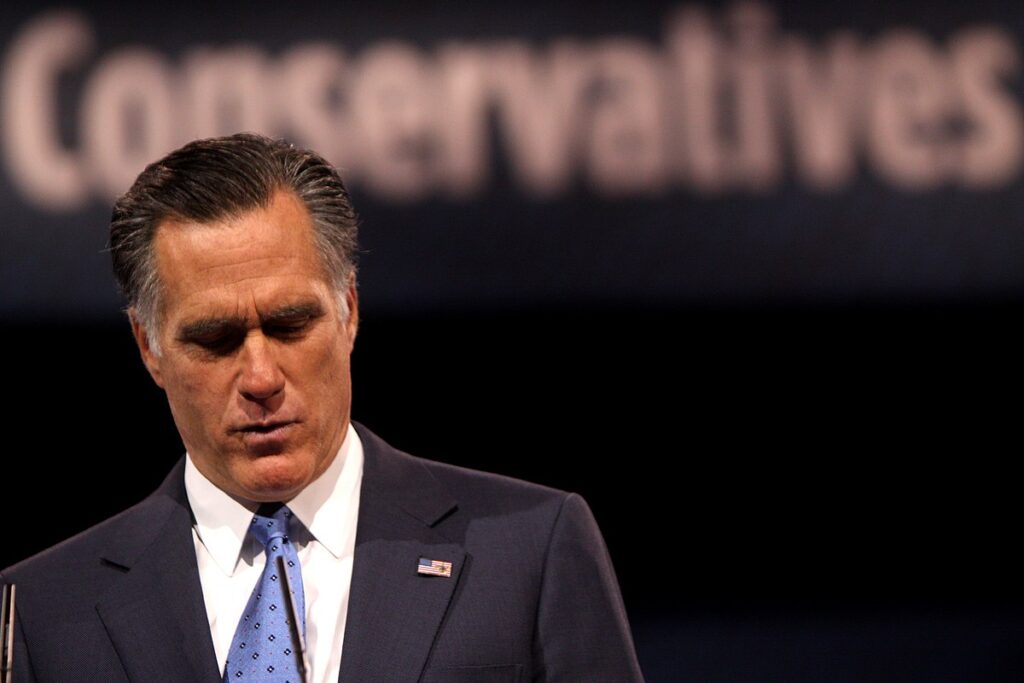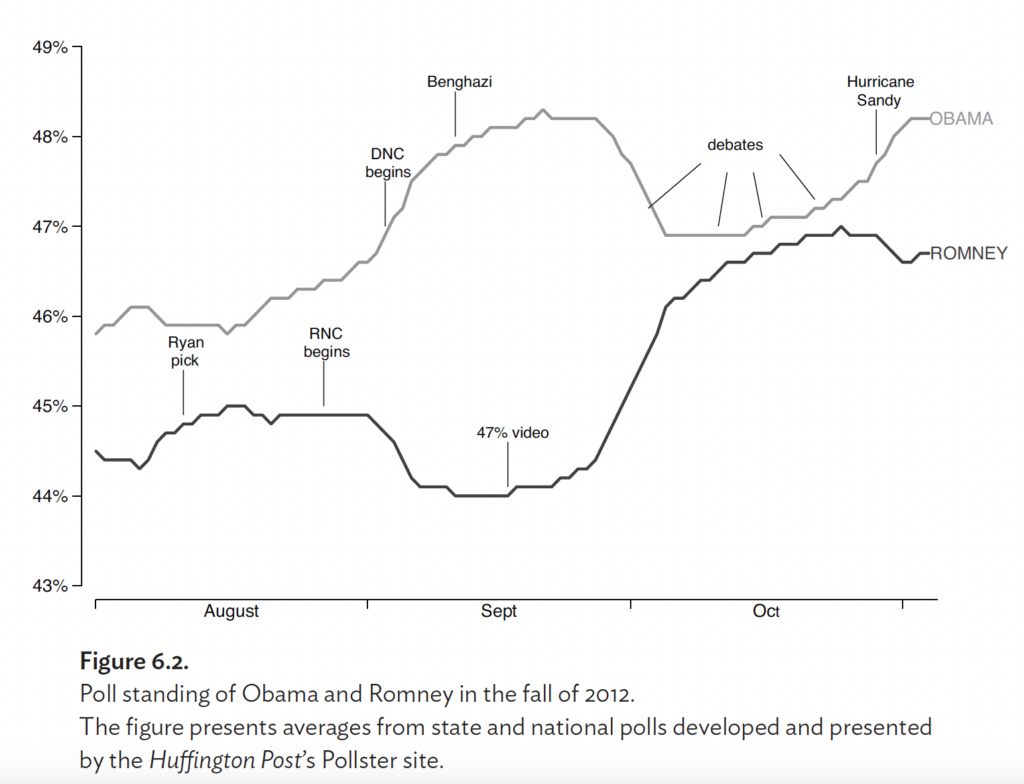
In the new Mitt Romney biography, the political writer McKay Coppins reports that Romney’s famous comment about the “47 percent” almost led him to drop out of the race. In his review of the book, the author Thomas Mallon goes even further, attributing Romney’s eventual defeat to that comment:
But he lost the election mostly on his own, with a gaffe worse than his father’s old brainwashing one: Romney was caught on tape dissing the “47 percent” of voters “dependent upon government, who believe that they are victims.”
I have a documented appreciation for Thomas Mallon’s books. But, alas, this characterization of the 47% comment is more myth than fact. I said this at the time. Mallon’s comment over a decade later just shows how hard it is to dislodge dramatic campaign narratives.
Here’s what really happened, according to the analysis in the book I wrote with Lynn Vavreck about the 2012 election.
First, not much changed in the horse-race polling, as you can see from the national polling averages graphed in our book:

As we write:
Obama had about a 4-point lead on the day the video was released. A week later, his lead had not changed. Two weeks later, his lead had actually shrunk by a point or so. Thus, it is far from clear that the video’s impact really changed anyone’s mind.
Moreover, the 47% comment didn’t change overall perceptions of whether Romney cared about the wealthy, the middle class, the poor, or “people like you.” At most, the 47% video’s release shifted a small number of Republicans from Romney to undecided.
This is why a comment thought to have “killed Mitt Romney’s campaign for president” was quickly eclipsed by the impact of the first presidential debate, as the graph shows. The debate brought those undecided Republicans back. As we write:
Many of these undecided voters were Republicans who were apparently returning to the fold. They had previously supported Romney, wavered after the 47% video and became unsure about their vote, and now had come back to him after this debate. The number of undecided Republicans had increased in YouGov polls from 4% to nearly 12% in the two weeks after the 47% video was released, but in the first poll after the debate only a bit more than 1% was undecided and Romney’s support was 8 points higher than just before the debate.
Don’t believe a bunch of political scientists? Think we have a pathological disdain for campaign narratives? Well, the famously data-driven Obama campaign saw the same thing that we did:
Obama’s deputy campaign manager, Stephanie Cutter, said that whatever small fraction of voters moved away from Romney after the video’s release eventually came back to him: “No one believed us at the time. We were saying that as this two percent moved away from Romney it wasn’t ours. The race was closer than people thought at the time.” This is precisely what we found: Republicans who shifted away from Romney after the video’s release came back to him after the first debate.
I don’t mean to pick on Thomas Mallon, whose belief about Romney’s gaffe is probably widely shared. And I’m sure Romney wishes he hadn’t made that gaffe. But it didn’t lose him the election.



